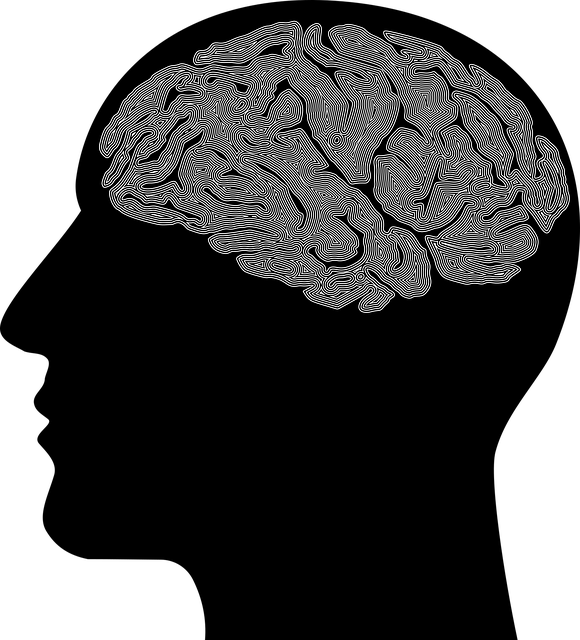Mental wellness, as emphasized by Lone Tree Mandarin Chinese Speaking Therapy, is a holistic state that includes emotional, psychological, and social well-being. In today's stressful world, mindfulness, self-care practices like meditation and exercise, and setting boundaries are crucial for managing stress, enhancing resilience, and preventing burnout, especially among healthcare professionals. Lone Tree offers a culturally sensitive approach by providing therapy in Mandarin Chinese, breaking communication barriers and fostering deeper connections. They combat mental health stigma in Chinese-speaking communities through tailored services and public awareness campaigns, normalizing mental wellness discussions. Incorporating Traditional Chinese Practices, such as acupuncture and tai chi, along with Western therapy, provides holistic support for improved self-esteem and mood regulation. Maintaining mental wellness involves a balanced approach combining self-care practices and professional support, including compassion cultivation and mood management techniques.
Mental wellness is a cornerstone of overall health, and promoting it is more crucial than ever in today’s fast-paced world. This article explores various aspects of enhancing mental well-being, from understanding mindfulness and self-care to addressing cultural sensitivity in therapy. We delve into innovative approaches like Lone Tree Mandarin Chinese Speaking Therapy, which offers a unique cultural perspective on mental health support. Additionally, we discuss strategies to overcome the stigma surrounding mental health within Chinese-speaking communities and present practical tips for maintaining long-term mental wellness.
- Understanding Mental Wellness: The Significance of Mindfulness and Self-Care in Daily Life
- Lone Tree Mandarin Chinese Speaking Therapy: A Unique Approach to Cultural Sensitivity in Mental Health Support
- Overcoming Stigma: Promoting Open Conversations about Mental Health in Chinese-Speaking Communities
- Integrating Traditional Chinese Practices into Modern Therapy: Benefits for Mental Wellness
- Strategies for Sustaining Mental Wellness: Practical Tips for Maintaining a Healthy Mind
Understanding Mental Wellness: The Significance of Mindfulness and Self-Care in Daily Life

Mental wellness is a holistic state of being that encompasses our emotional, psychological, and social well-being. It’s about recognizing and valuing our unique strengths, managing challenges, and cultivating a sense of purpose in life. In today’s fast-paced world, where stress and pressure are prevalent, understanding mental wellness is more crucial than ever. This involves acknowledging the importance of mindfulness and self-care practices as integral parts of our daily routines.
At Lone Tree Mandarin Chinese Speaking Therapy, we emphasize the significance of these practices in promoting mental wellness. Mindfulness encourages us to be present in the moment, fostering a deeper connection with our thoughts and emotions without judgment. Self-care involves intentional activities that nurture our physical, mental, and emotional needs. Incorporating mindfulness exercises and self-care routines into our lives can significantly reduce stress, enhance resilience, and improve overall mental wellness. This is particularly important for healthcare professionals who often face high-stress environments and may be at risk of burnout (Risk Management Planning for Mental Health Professionals). Engaging in regular practices such as meditation, exercise, and setting boundaries can prevent burnout (Burnout Prevention Strategies for Healthcare Providers) and ensure they can continue to provide optimal care to their patients.
Lone Tree Mandarin Chinese Speaking Therapy: A Unique Approach to Cultural Sensitivity in Mental Health Support

Lone Tree Mandarin Chinese Speaking Therapy offers a unique and culturally sensitive approach to mental health support, catering specifically to the needs of the Mandarin-speaking community. This specialized service recognizes the importance of addressing cultural barriers in therapy and leverages the power of language to foster deeper connections between therapists and clients. By providing therapy in Mandarin Chinese, Lone Tree breaks down communication obstacles, ensuring that individuals from diverse linguistic backgrounds can access effective emotional well-being promotion techniques.
The therapy model not only promotes inner strength development through tailored interventions but also considers the nuanced challenges faced by those within the Mandarin-speaking community. This cultural sensitivity extends to risk assessment for mental health professionals, ensuring they are equipped to navigate complex dynamics and deliver compassionate care. Lone Tree’s approach exemplifies how understanding and incorporating cultural nuances can significantly enhance therapy outcomes.
Overcoming Stigma: Promoting Open Conversations about Mental Health in Chinese-Speaking Communities

In many Chinese-speaking communities, mental health discussions are often shrouded in stigma, creating barriers to seeking support. Overcoming this cultural hurdle is essential for promoting emotional well-being and ensuring access to quality care. Lone Tree Mandarin Chinese Speaking Therapy recognizes this unique challenge and takes a proactive approach. Through tailored services and culturally sensitive practices, they foster open conversations about mental health.
Public awareness campaigns play a pivotal role in breaking down stereotypes. By incorporating traditional media and community events, these initiatives educate folks about the importance of mental wellness. Additionally, engaging local leaders and influential figures can help normalize conversations, making it easier for individuals to recognize and address their mental health concerns. This holistic strategy, combined with an understanding of cultural nuances, is key to improving mental healthcare access and outcomes in Chinese-speaking populations.
Integrating Traditional Chinese Practices into Modern Therapy: Benefits for Mental Wellness

Incorporating Traditional Chinese Practices into modern therapy offers a unique and beneficial approach to mental wellness promotion, especially for those seeking an alternative or complementary treatment. Lone Tree Mandarin Chinese Speaking Therapy, for instance, leverages ancient wisdom to address contemporary challenges. Practices like acupuncture, tai chi, and qigong, deeply rooted in Chinese culture, have been shown to improve self-esteem and enhance mood management skills. These techniques focus not just on symptoms but on overall balance and harmony within the mind and body.
This integration provides a holistic perspective, recognizing that mental health is intrinsically linked to physical well-being and emotional resilience. By combining Western therapeutic methods with these traditional practices, therapists can offer tailored support for individuals seeking to improve their self-esteem and cultivate better mood regulation skills. Community outreach programs implementing such integrated approaches have shown promising results in fostering mental wellness within diverse populations.
Strategies for Sustaining Mental Wellness: Practical Tips for Maintaining a Healthy Mind

Maintaining mental wellness is a journey that requires consistent effort and strategic practices. It’s about creating a balanced lifestyle that supports your emotional, psychological, and social well-being. One effective approach is incorporating compassion cultivation practices into daily routines. This involves cultivating self-compassion, understanding others’ perspectives, and fostering a non-judgmental mindset, which can significantly enhance resilience and reduce stress.
Additionally, mental wellness professionals should focus on mood management techniques to regulate emotional states. This includes identifying and challenging negative thought patterns, engaging in mindfulness practices, and adopting healthy coping mechanisms like exercise, adequate sleep, and socializing. Risk management planning is also crucial; therapists and counselors should prioritize self-care, set clear boundaries, and stay updated with their professional development to ensure they can provide the best care for their clients, such as those seeking Lone Tree Mandarin Chinese Speaking Therapy services.
In promoting mental wellness, it’s evident that various cultural approaches and practices play a pivotal role. The article has explored this through examining unique therapy models like Lone Tree Mandarin Chinese Speaking Therapy, which addresses cultural sensitivity in mental health support. By integrating traditional Chinese practices with modern therapy, we can create inclusive spaces for open conversations about mental health within Chinese-speaking communities. This holistic approach, coupled with mindfulness and self-care strategies, empowers individuals to maintain a healthy mind, dispel stigma, and embrace a vibrant mental wellness tapestry.









